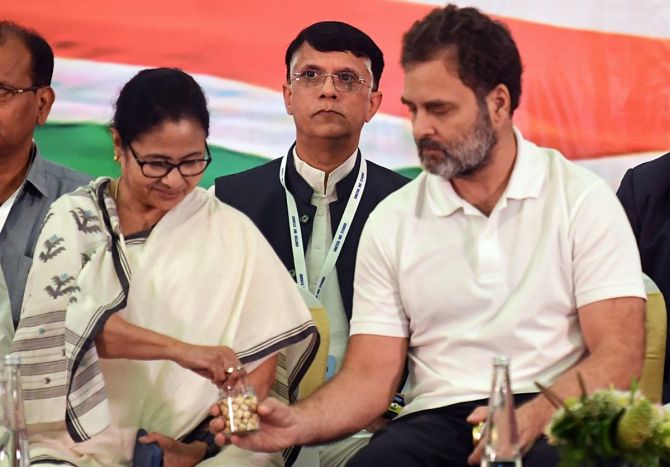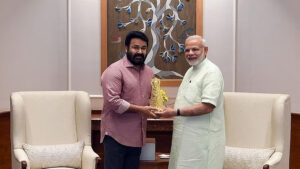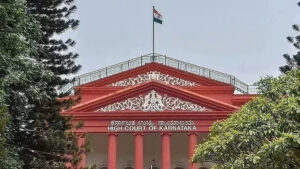In a significant development in Indian politics, a united front comprising various opposition parties has been proposed, with the name ‘India,’ by Rahul Gandhi, the leader of the Indian National Congress. The proposal has gained support from Mamata Banerjee, the Chief Minister of West Bengal and the leader of the Trinamool Congress. This move is seen as a major attempt to challenge the ruling party in the upcoming national elections.
The proposal was put forth during a meeting between Rahul Gandhi and Mamata Banerjee, held at an undisclosed location. The two leaders discussed the need for a strong and united opposition front to counter the ruling party’s dominance. It is reported that several other opposition leaders have also been approached to join the ‘India’ front, with discussions underway.
Rahul Gandhi, who has been a prominent figure in Indian politics, believes that the formation of a united front is necessary to provide a viable alternative to the current government. The Congress leader aims to bring together like-minded parties from across the country to address issues such as the economy, healthcare, and social justice.
Mamata Banerjee, known for her strong regional presence and her recent victory in the West Bengal Assembly elections, expressed her support for the proposed front. She emphasized the importance of unity among opposition parties and urged them to set aside ideological differences for the greater goal of serving the nation.
The proposed ‘India’ front has already generated considerable interest among political circles and the public alike. Many opposition leaders are said to be considering the proposal, and discussions are expected to intensify in the coming weeks. The objective of this united front is to create a formidable opposition alliance capable of challenging the ruling party’s political hegemony.
However, it is worth noting that some political analysts remain skeptical about the feasibility and sustainability of such a broad opposition alliance. They argue that differences in regional aspirations, ideologies, and leadership ambitions could pose significant challenges in maintaining unity within the ‘India’ front.
The coming weeks will be crucial as political parties deliberate on the proposal and decide whether to join the ‘India’ front. If successful, this united opposition front could reshape the political landscape in India, setting the stage for a highly competitive and closely contested national election.
As the political climate intensifies, all eyes will be on the opposition parties as they determine their course of action, potentially altering the trajectory of Indian politics in the process.









